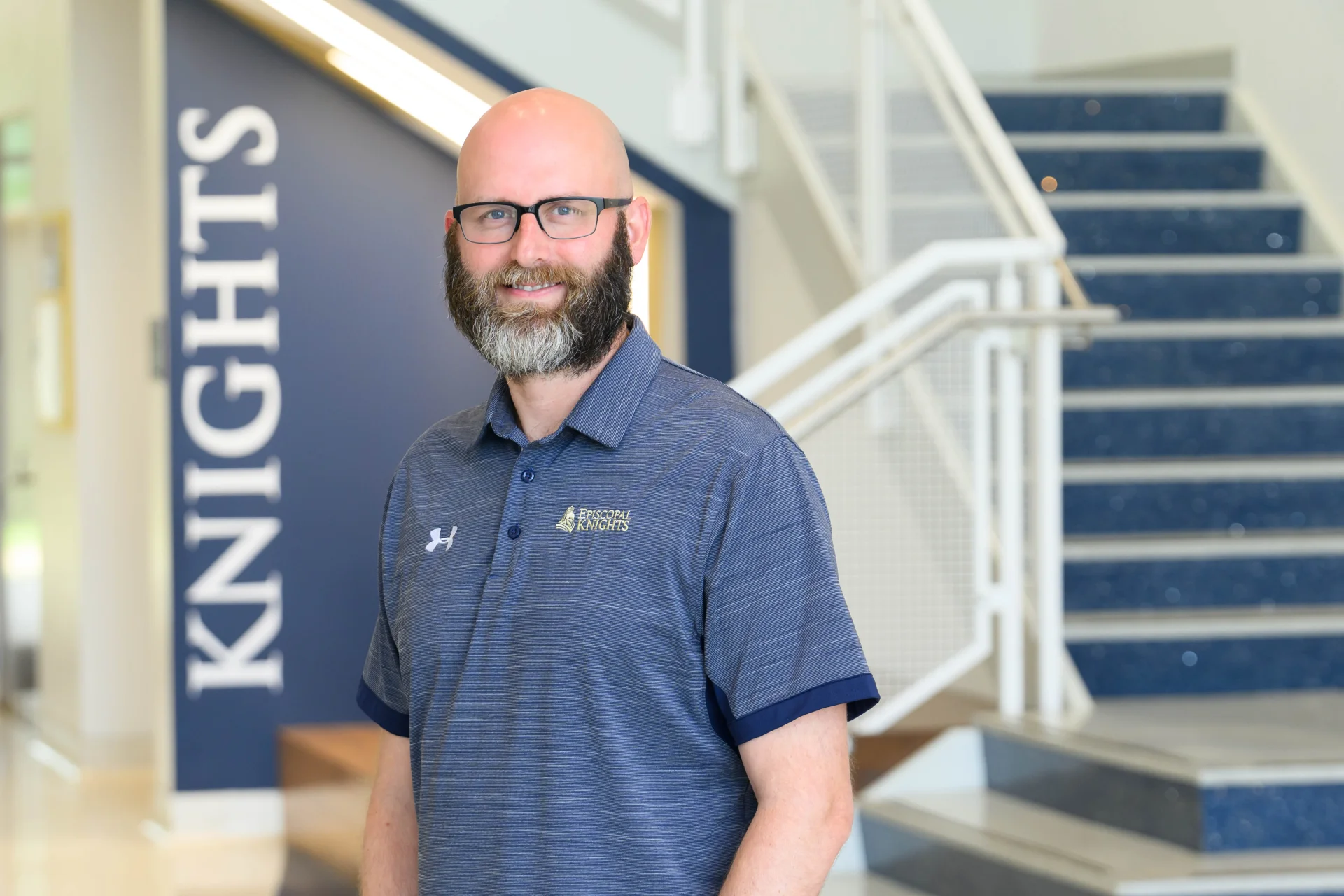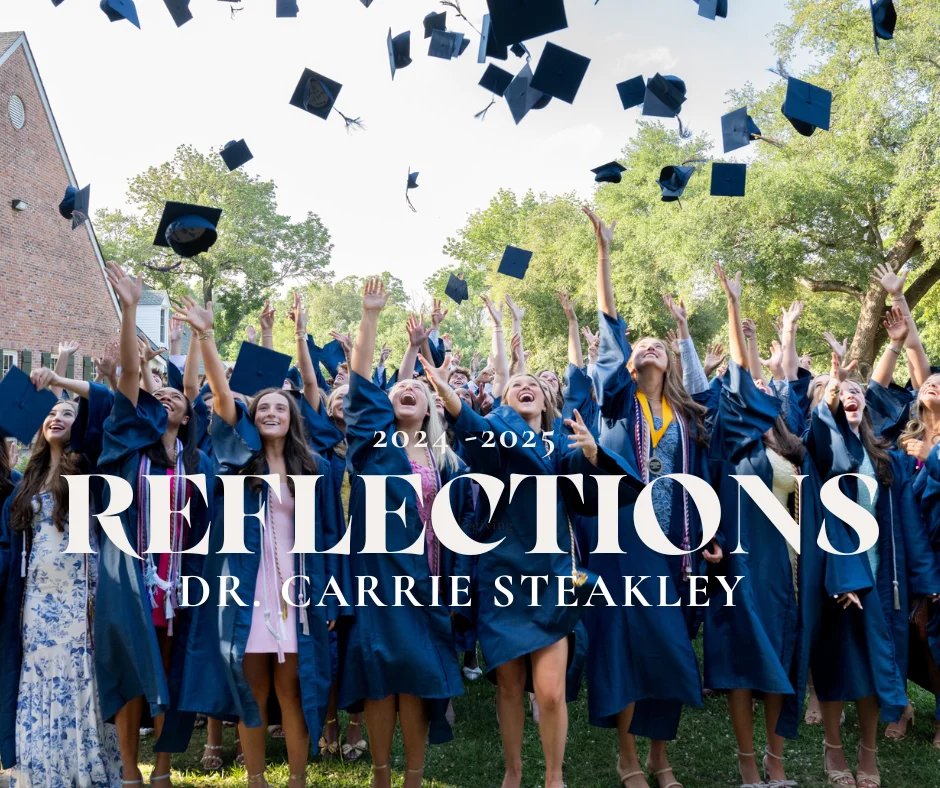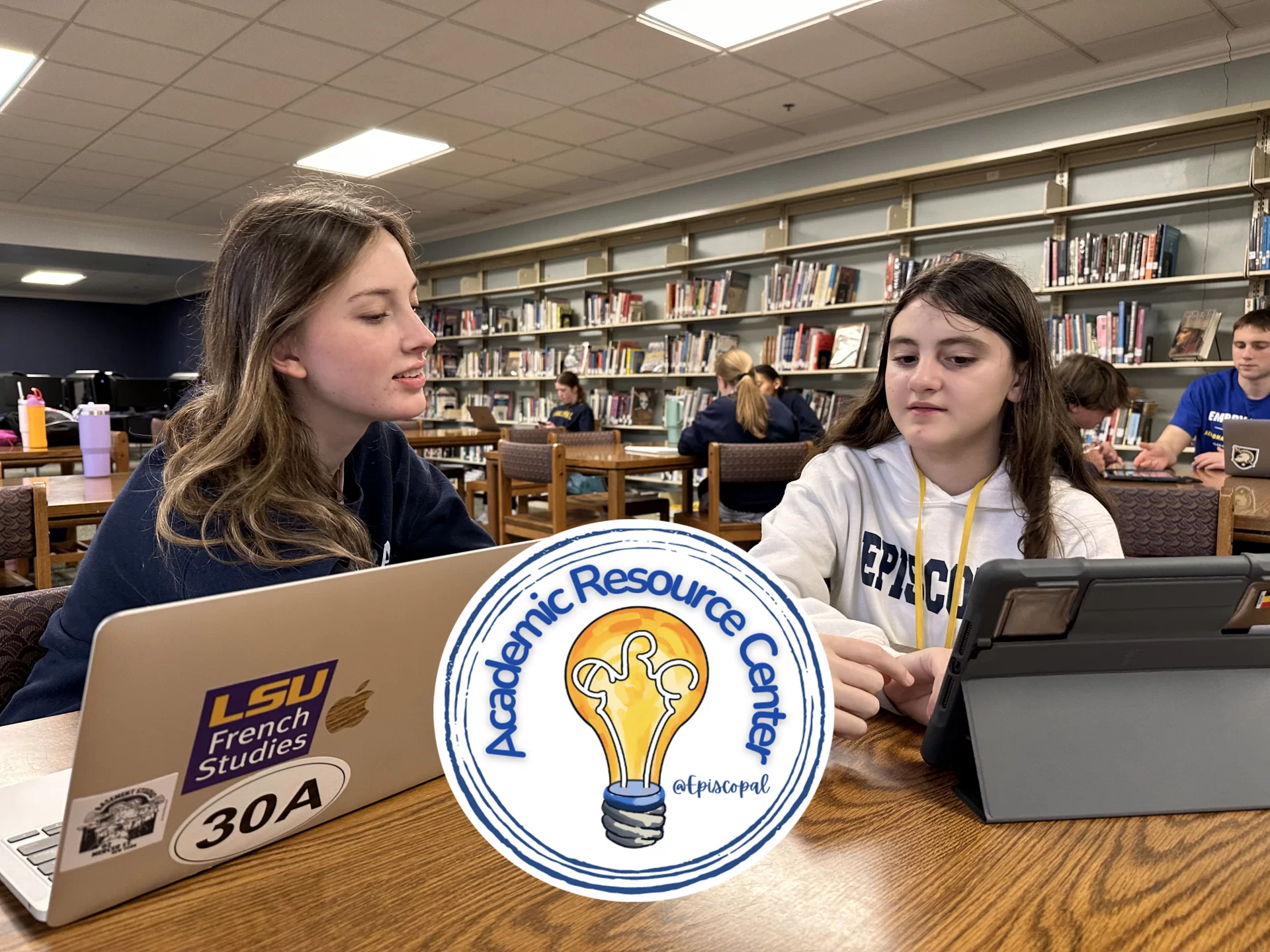- Admission
- Discover Episcopal
- Our Program
- Athletics
- Arts
- Spirituality
- Student Life
- Support Episcopal
- Alumni
- Parent Support
- Knightly News
- Contact Us
- Calendar
- School Store
- Lunch Menu
- Summer Camps
« Back
Portraits of Otherness in an Episcopal English Class
November 11th, 2021

Business plans, budgets and mission statements. Upper School students created all of these as part of an assignment to develop a nonprofit organization to address an issue in the world today. A group of “sharks” even listened to the students’ pitches and provided feedback. The assignment did not occur in an entrepreneurship course or even a business course. This was a recent project in an Upper School English senior seminar course. Teacher Dawn Burton’s course, “The Other: Portraits of Otherness in Literature and Beyond,” is a great example of the university-inspired learning experiences offered by faculty in the Episcopal English department.
“This kind of project incorporates every English skill I know. It’s a complete assignment. It checks everything,” says Burton.
The nonprofit exercise required the 12 seminar students to read, research, write, present and revise. Students chose the topics and elected to tackle everything from assisting incarcerated people with mental health challenges to creating awareness about discrimination against Asian Americans. Students brainstormed ways to ensure safe transportation on college campuses and created an anonymous portal for discussing sexual harassment.
Burton says to imagine the nonprofit organizations, students had to dive deep. For example, when planning an organization to assist those with a substance use disorder, students considered the obstacles people face in obtaining health care or counseling services. Students planning to assist refugees from Afghanistan by matching the teenage refugees with local students reflected on the trauma experienced and the needs that must be met. Burton says the experience allowed students to “walk in someone else’s shoes and figure out how to help them.” The ideas were thoughtful, and some groups hope to follow through and make them a reality.

“They’ve mastered everything. They can write the essay. We want them to think,” says Burton.
Episcopal is known as an institution that teaches students to think critically, and The Other course is a great example of how that occurs. Small class sizes and a commitment to inquisitiveness make project-based learning the norm across campus. As Burton’s class highlights, design thinking and processing experiences occur in places other than the studio or lab. The course is fluid and Burton has the flexibility to model the learning based on student interests. Already, they are gaining new insights.
“The most important thing that I probably learned is that if you find something that you are passionate about, don’t be afraid to chase it,” says Charlie Graves. “The goal of our class creating entirely new foundations that would affect major change didn’t seem like it could actually be implemented into real life. After taking two weeks to sit down and work hard on this project, I realized that it is indeed possible.” Charlie and his partner Cooper Burnett created a plan for a nonprofit that would partner teenage Afghan refugees with local teens to help the newcomers adjust.
“The design process of brainstorming, editing, and receiving feedback from our peers allowed us to create a product that we hold in esteem,” says Sara Morgan who created the People Protection Project to establish transportation safety protocols at universities in Louisiana. “Our ability to share and connect on ideas that we liked felt natural and effortless as we concluded the project.”
“When Mrs. Burton originally presented our Otherness Project, there was no hesitation on what topic I wanted to pick,” says Cate Brien. “An issue that I had been researching for a year and a half in my thesis class and something that I had recently dealt with a lot more than I had liked, sexism. Our project was called Girls Helping Girls, GHG for short, and we aimed to create a safe space for girls on our campus to talk about their experiences with sexism at school and outside of our community.” Cate hopes to establish GHG so that even after she graduates it still provides a place for discussion.
“I think the most enjoyable part of the project was realizing that this could have an impact on a lot of people,” says Maggie Safer who created an organization to support Asian Americans amid misconceptions surrounding COVID-19.
“A class like this one helps students make connections,” Assistant Head of School Dr. Sara Fenske.
Each year, Assistant Head of School Dr. Sara Fenske is excited to see what creative and thought-provoking courses the Episcopal English faculty will offer. She says the teachers are at the forefront for how to teach literature in its many different forms and how to help students think critically. She points to the department’s catalog that reads like a university class list. Courses like Burton’s and “The Mythical American West,” “Mythology and Folklore: New Tellings of Old Tales,” and “What’s So Funny?” are described as project-based and student-centered. Faculty have the freedom to adjust the courses to align with student interests. In many ways, this provides relevance and purpose to the experiences. Dr. Fenske says courses such as those offered in the English department truly distinguish Episcopal from other public and private schools.
Burton, who has a passion for teaching meaningful content, is the ideal instructor for a course like The Other. In 2017, she was one of 10 winners of the Teacher Innovator Award given by the Henry Ford Innovation Nation. She is no stranger to teaching in nontraditional ways and encouraging students to think for themselves. It will be exciting to see how she and her colleagues continue helping students make connections that last a lifetime.
The Episcopal School of Baton Rouge 2025-2026 application is now available! For more information on the application process, to schedule a tour, or learn more about the private school, contact us at [email protected] or 225-755-2685.
Posted in the categories All, Upper School.
Other articles to consider
 Jun5Episcopal Announces New Athletic Director
Jun5Episcopal Announces New Athletic DirectorPlease join us in welcoming Brent Broussard to the Episcopal community.
See Details Jun2Episcopal Welcomes Dan Binder as the Next Upper School Division Head
Jun2Episcopal Welcomes Dan Binder as the Next Upper School Division HeadPlease join us in welcoming Dan Binder to the Episcopal community.
See Details May22End of the Year Reflection from Dr. Steakley
May22End of the Year Reflection from Dr. SteakleyAn Episcopal education and the community that supports it are remarkable. Dr. Steakley looks back at the moments that made the 2024/2025 school year.
See Details May12Tutoring with a Purpose: Jackson Ezell Reflects on His Time in the Academic Resource Center
May12Tutoring with a Purpose: Jackson Ezell Reflects on His Time in the Academic Resource CenterTime as an ARC Fellow boosts student confidence, encourages friendships and fosters lifelong learning habits. Senior Jackson Ezell reflects on his transformation as a tutor and the transformation of the center from Writing Center to Academic Resource Center.
See Details
Categories
- All
- Admission
- Athletics
- College Bound 2019
- College Bound 2020
- College Bound 2021
- College Bound 2022
- College Bound 2023
- College Bound 2024
- College Bound 2025
- Counselors Corner
- Episcopal Alumni
- Giving
- Head Of School
- Lower School
- Middle School
- Spirituality And Service
- Student Work
- The Teachers' Lounge
- Upper School
- Visual And Performing Arts











